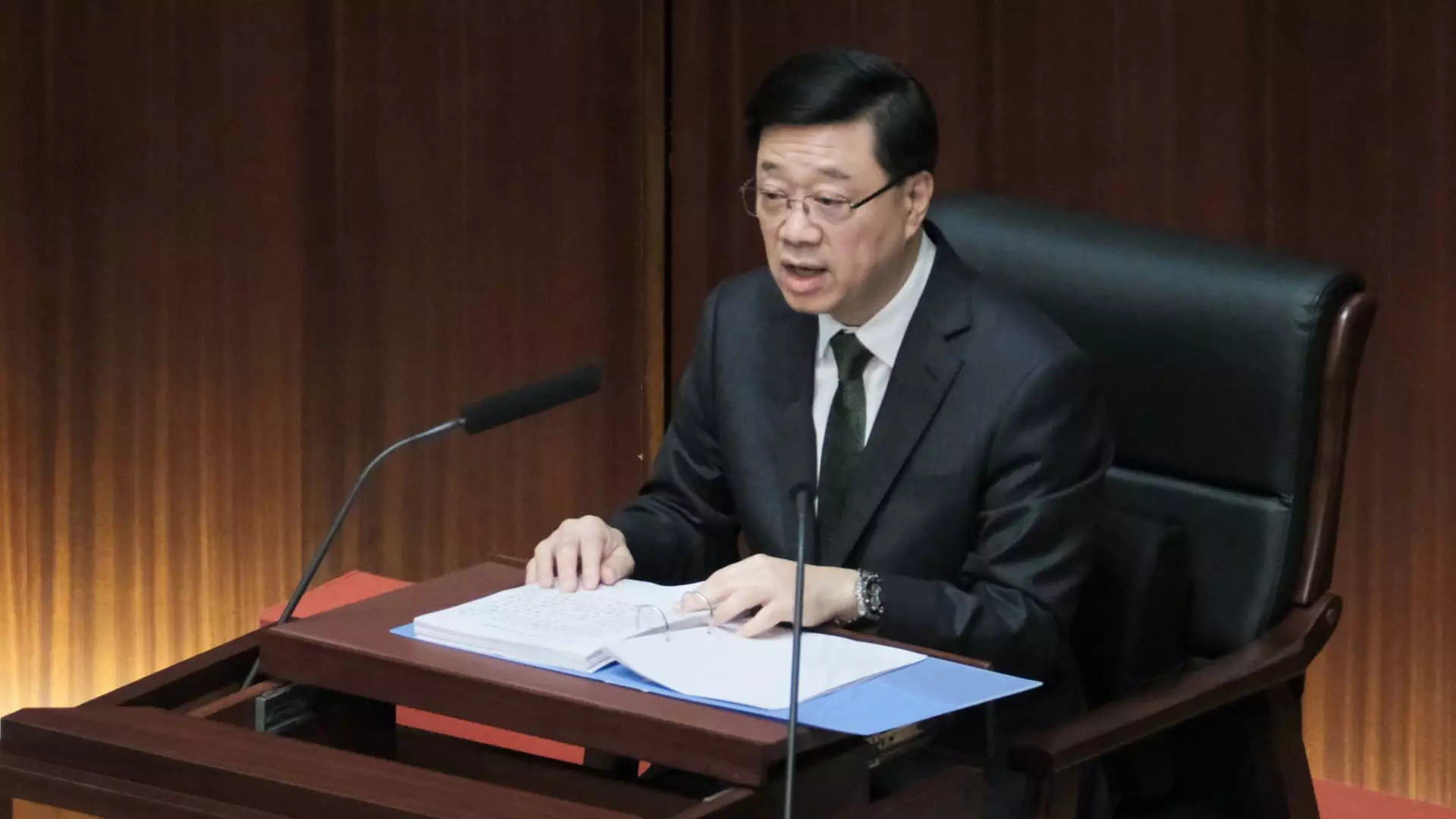Hong Kong’s housing crisis stands as one of the most pressing socio-economic challenges facing the territory today. With soaring property prices and a dire lack of affordable housing, many residents struggle to secure suitable living conditions. In response to these mounting challenges, Chief Executive John Lee has laid out a series of initiatives aimed specifically at alleviating these burdens, particularly for younger constituents in his latest policy address.
Lee highlighted the profound impact of the housing situation on citizens under 40, stressing the importance of a proactive approach. The recognition of this demographic’s struggles marks a significant shift in policy focus, prioritizing an age group often overlooked in previous initiatives. This multifaceted approach aims to create pathways to homeownership and improve overall living conditions for younger generations in the bustling metropolis.
One of the most notable strategies outlined in Lee’s address is the introduction of additional ballot numbers for applicants aged under 40 seeking subsidized housing through the Home Ownership Scheme. This policy not only acknowledges the barriers faced by young people in entering the increasingly competitive housing market but also reflects a commitment to addressing these disparities.
In tandem with this initiative, the government plans to bolster the quota for the “White Form Secondary Market Scheme.” By adding 1,500 units specifically for young applicants, authorities are expanding opportunities for secondhand housing transactions free from land premium costs. These adjustments are particularly crucial given that only a limited number of households—4,500—were eligible under the current scheme as of 2023.
The concern doesn’t solely revolve around housing shortages; it extends into the behavioral adjustments young people are making as they strive for stability. Reports indicate that many young adults are opting out of promotions and pay increases to maintain eligibility for public housing—an alarming indicator of the pressure they are under. This behavioral shift underscores the profound anxiety surrounding housing security, emphasizing the need for immediate action to regain a sense of stability and opportunity for future generations.
Lee’s commitment to sustaining the Youth Hostel Scheme, which subsidizes organizations that provide temporary accommodations for the youth, complements his housing initiatives. Such schemes play a critical role in offering immediate relief to those grappling with monetary constraints while navigating an inhospitable housing landscape.
Addressing the issue of substandard housing conditions, Lee announced a plan to establish a new regulatory framework for subdivided flats—often derisively termed “shoe-box” units due to their minuscule sizes. Under the proposed system, units deemed “substandard” will be upgraded into “Basic Housing Units,” ensuring they meet newly instituted health and safety standards. This is vital, as many existing subdivided flats pose significant risks to residents’ wellbeing.
The ambitious goal of completing approximately 30,000 new public housing units by 2027-2028 emphasizes the urgency of the situation. Despite the government’s expectation to reduce waiting times from 5.5 years to 4.5 years by the mid-2020s, there remains a pressing gap between demand and supply that must be continually addressed.
Lee’s recent policy address marks a discernible pivot from prior focuses on national security and pandemic recovery to the pressing reality of housing stability and economic resilience. This recalibration reflects an understanding that the residents of Hong Kong need immediate solutions that directly impact their lives and futures. By concentrating on affordable housing initiatives, the government is signaling a commitment to rebuilding trust among citizens and fostering a sense of community amidst ongoing socio-economic challenges.
The initiatives introduced by Chief Executive John Lee serve as a beacon of hope for younger Hong Kong residents. By directly addressing the impacts of housing affordability, the government is taking crucial steps towards a more equitable and accessible urban environment. However, the real challenge lies in the execution and sustainability of these policies, as the social fabric of Hong Kong depends on their success.

